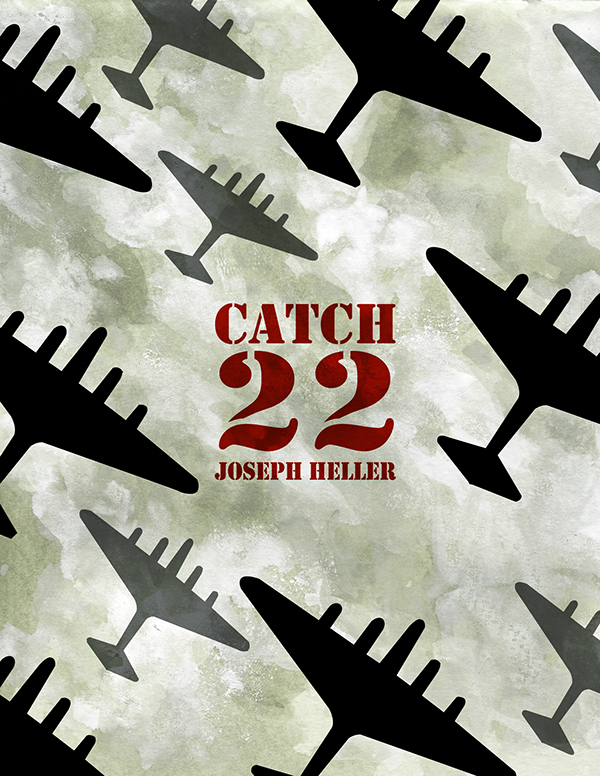During the Vietnam War, soldiers and protesters found very little common ground. An unlikely area of agreement, though, was the shared fondness for Joseph Heller’s Catch-22.
Today, Heller’s opus is viewed as the epitome of anti-war dystopian fiction. Its bleak comedy and brutal cynicism encourage scorn for the military establishment and something like hatred for the machinations of Scheisskopf and Milo Minderbender. Yossarian, the protagonist who rejects the premise of war altogether, and the dyspeptic Doc Daneeka are perhaps the most sane characters in the book. So of course, protesters brandished the book, and young people brought it on trips and to college. If Yossarian made it back to the States, he’d probably be a protester.
Less intuitive is why soldiers in Vietnam also loved the book.

Source: Amazon
Catch-22 is satire. For satire to be effective, it must have elements of truth. Since Heller was himself a bombardier in WWII, his “elements of truth” were drawn directly from his own experiences. That lends the book an extra touch of realism that resonated with real-life soldiers in Vietnam. They read his twisted, exaggerated scenarios and likened them to their own experiences. While it gave protesters fuel to criticize the military and the war, it let the draftees laugh at their own predicament. At least one soldier (Marc Anderson, as he told NPR in 2011) even went so far as to carry the book with him on forays into the jungle.
But Catch-22 isn’t just important because of its popularity among protesters and soldiers. War novels aren’t usually satirical. So naturally, the reviews ranged from high praise to absolute revulsion. Some reviewers even found Heller’s grand opus offensive in its characterization of soldiers and the army as petty, not the romantic heroes of Hemingway and Remarque. In other words, this book was one of the more controversial of its time, both in the press and the general public.
Let’s look at the timeline here. Catch-22 was published in 1961. Prior to that, the most negative view of warfare by an American author may have been Norman Mailer’s 1948 book The Naked and the Dead, which is still more a tragedy than a satire. But a scant eight years later, Kurt Vonnegut published Slaughterhouse-Five, which satirizes tales of civilians caught in war zones.
Today, we see movies like Full Metal Jacket, Platoon, and The Hurt Locker, all of which show the darker, seedier side of warfare. Even genre fiction has joined the party: for example, Glen Cook’s fantasy series The Black Company, about a deadly company of mercenaries, couches a brutally dehumanizing take on battle in an extremely dark breed of humor not unlike Heller’s.
So could a protest novel like Catch-22, along with the rise of television and war reporting, have contributed to the end of the simplistic soldier/hero mythos? And if so, is this good? Is it bad? Or is it something more nuanced? Regardless, it’s clear that this piece of literature fundamentally changed something about how art approaches war. And its aftershocks could still be reverberating through politics and society today.
What modern books, shows, or movies could have a similar impact?
YouTube Channel: Paramount Movies
Featured image via Red Bubble



